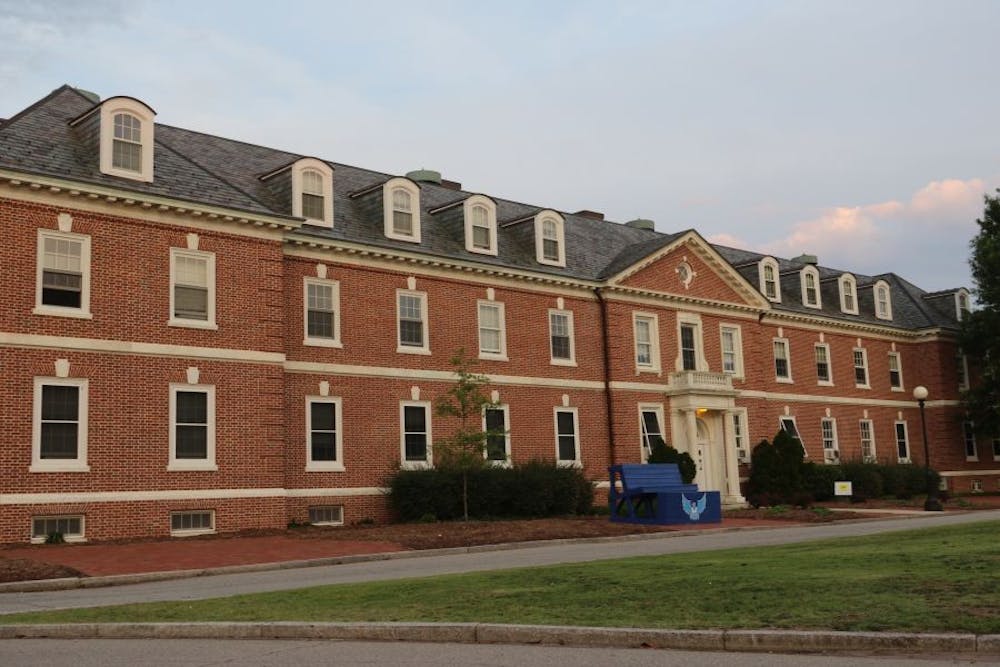Almost all the discussion about housing at Duke had centered around upperclassman housing—that is, until Feb. 27, when incoming first-years learned they will not be able to select their roommates on East Campus.
A letter sent to the incoming class by Larry Moneta, vice president for student affairs, and Steve Nowicki, dean and vice provost for undergraduate education, informed the Class of 2022 about the housing change. They cited research showing the benefits of the diverse interactions that might take place with random roommates.
“We believe you’ll enjoy the opportunity to meet someone you’ve not previously known and will have a great opportunity to explore your roommate’s history, culture and interests," Moneta and Nowicki wrote in the letter.
In the following days and weeks, controversy ensued. There was praise—Duke Students for Housing Reform was “heartened” when they read the letter, telling students to keep an “open mind.” And there was criticism—Chronicle columnist Mitchell Siegel called the decision “more like a politically correct marketing technique to embrace multiculturalism,” and The Chronicle's Editorial Board labeled it “a hastily-created quick-fix solution that is entirely internal in its conception and approval.”
Nowicki disagreed with much of the criticism leveled against the new policy. He said the decision was reached after thorough research and deliberation. Last October, the Board of Trustees told Moneta and other administration officials to research housing at Duke and develop reforms that would be beneficial but not too radical. From their research, two conclusions jumped out at them.
First, 46 percent of first-years from the Class of 2021 selected their roommates, a number that they felt was too high, Moneta wrote in an email. For comparison, roughly one-third of incoming first-years at the University of Pennsylvania selected their roommate. Nowicki noted as well that students who select their roommates tend to come from more advantaged, higher-income backgrounds.
Second, Nowicki pointed out that on the annual senior surveys, seniors who self-report interacting frequently with different types of people also report greater gains in critical thinking, communication skills and empathy. Additionally, alumni who said they interacted with those unlike themselves at Duke had higher salaries than those who did not.
“Students who as undergraduates interact more with people unlike themselves…do better on a wide range of metrics,” he said.
The decision to randomize all first-year roommates is not unprecedented. Incoming first-years at Stanford University, Princeton University and Harvard University are not allowed to select their roommate in advance.
Despite the potential benefits, some incoming Duke students are still displeased and anxious about having no control over who they will be living with next year.
“I’m not a huge fan of things that are outside of my control, so I thought finding someone I knew from the first day of school would be a good way to get into the swing of things,” said Lindsay Morgenstein, an Early Decision student who was admitted to the Class of 2022.
However, she said she is still optimistic and looks forward to meeting people she “wouldn’t have otherwise met.”
Raj Mehta, another student admitted Early Decision, was a bit more frustrated. Although he is not opposed to going random, he said students should have the opportunity to pick their roommate. He also did not appreciate “that they had brought this up out of the blue and didn’t give [students accepted through Early Decision] any forewarning,” though he still would have applied to Duke regardless.
Moneta wrote that he has received much more praise than complaints for the decision. Meanwhile, Nowicki recognized the validity of these complaints, but he did not think making the decision after Early Decision results came out was a big deal. He added that concerns would likely disperse over time.
“Some of [the incoming first-year students] are complaining about this. Next year, I expect that fewer will because they didn't know it ever was a possibility,” Nowicki said. “And then a couple of years from now, people will just say, hey, that's what you do at Duke.”
However, Nowicki acknowledged that some students believe the policy does not adequately solve the Duke’s diversity and community problems with housing. He said he doubts that it will drastically change Duke’s social culture but explained that it is still a step in the right direction.
Much of Duke’s housing issues, he explained, come from housing stock that is not suited for community-building. He was heartened by Duke’s recent commitment to building and renovating dormitories that are designed to accommodate communities.
Ultimately, no one knows how impactful or effective this piece of housing reform will be for Duke students. Nowicki said to just give it time—most major housing reforms take at least four to five years before their effects come to fruition.
Moneta pointed out the parallels between this roommate policy and another first-year housing change—the conversion of East Campus to a first-year campus.
“Students objected to that decision,” he wrote, “And yet, it is almost universally regarded as one of Duke’s best attributes.”
Get The Chronicle straight to your inbox
Signup for our weekly newsletter. Cancel at any time.

Jake Satisky was the Editor-in-Chief for Volume 115 of The Chronicle.

